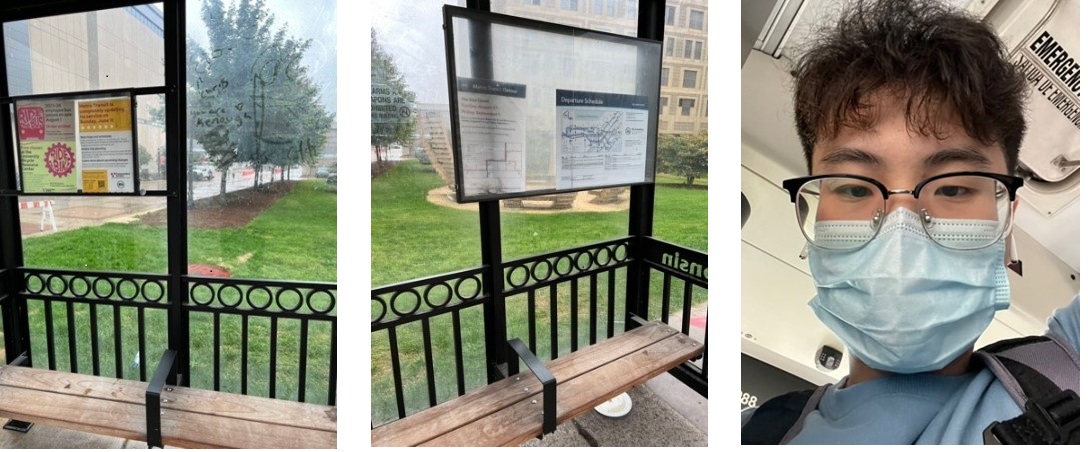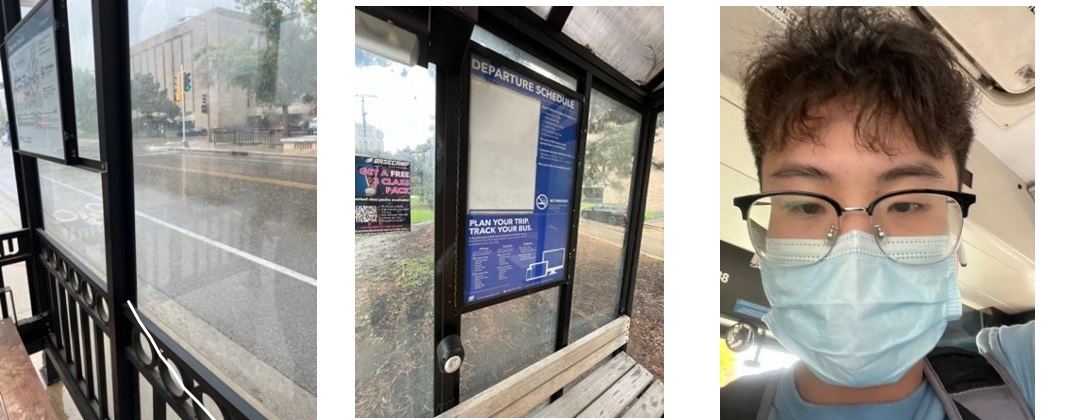Although COVID-19 seems to have been either forgotten or normalized by many people by 2023, it can still be serious for some, elders especially. Furthermore, those who may have little risk themselves should still take care not to spread the disease. Such thoughts prompted me to wear a mask while on the bus, to see how people reacted, and to see if anyone else still wore a mask.
First Day

On the first day, I started my journey at the bus stop near the Nicholas Recreation Center on the UW campus. While waiting for the #80 bus with others who were mostly students going to class, I noticed that no one else wore a mask. That made me feel a bit isolated.
Although the bus stop used to have a sign telling passengers that they were required to wear a mask while on the bus, such a sign was no longer there. Nor was there a sign on the bus. This makes sense since most people now are vaccinated and COVID is no longer a big deal.
However, I noticed that I was being “discriminated” against. Maybe it was just due to where I was seated, but it also could have been that I was the only one wearing a mask. Nobody sat next to me until the bus got crowded. It appears that wearing a mask gave people the idea that I was sick and needed to be avoided rather than that I was trying to protect others from exposure to the flu or COVID. Such a view was abetted by authorities ceasing to require masks on the bus, indirectly fomenting the idea that there is something wrong with you if you are still wearing a mask.
What would a second trip, starting from a different bus stop, tell me?
Second Day

On day two, I started riding the bus across from the Brogden Psychology building, also on the UW campus. Day two was a weekday when lots of students go to class. This bus stop was much more crowded.
Others are wearing masks too this time, and I do not feel so “discriminated” against like the day before. I don’t think that was because people suddenly changed their mind but because I was on the bus at a busy time and people were less worried about my being sick than about getting to class on time.
Although COVID still exists and gets people sick, most people no longer see it as a problem. Including me. If it were not for my research, I would not have bought masks or observed if others wore masks. For me, the only meaningful legacy of COVID is the unhappy memories it caused and how people want to get rid of things related to it.
Wearing a mask when everyone or most other people do not can be quite challenging. I sometimes felt embarrassed or uneasy being seen as different. In the public's mind, COVID is now over. It left no meaningful legacy. On the other hand, I did not feel the “discrimination” on the second day that I felt on the first day when I rode the bus with a mask. I was more at ease too. Some people seemed too focused on their own schedules to care that I was wearing a mask. Nor was I the only one wearing a mask. (I even heard coughing).
During this transition period, people start to associate masks with sickness. Wearing a mask may seem necessary when people with COVID go out, but society at-large seems to have quit informing people that COVID is a peril.